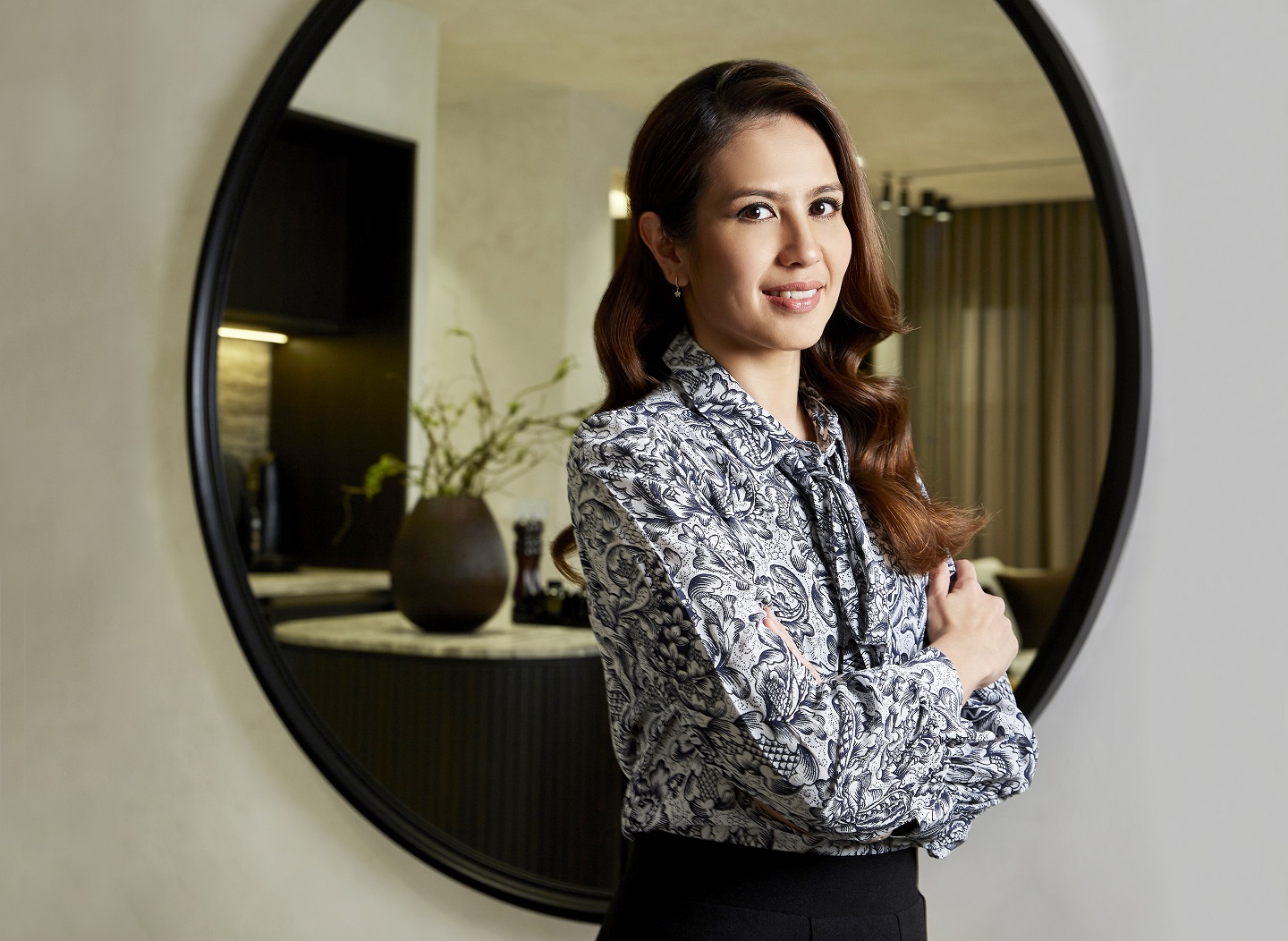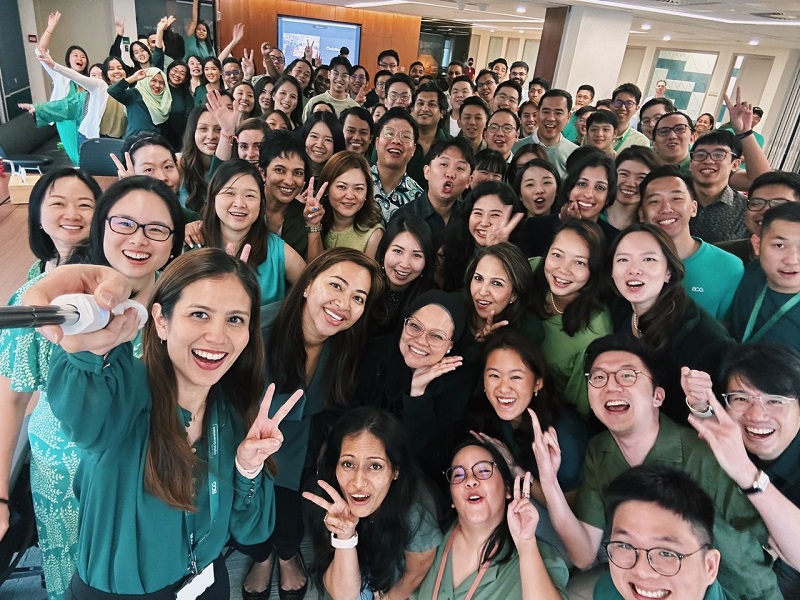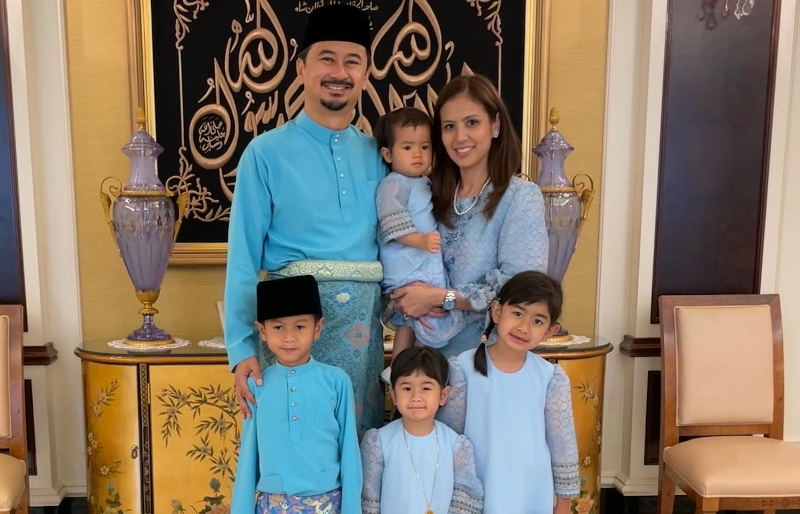
As head of BCG Malaysia, she ensures a good culture within the organisation (Photo: Soo Phye)
Some women seem to have it all: children, supportive spouse, loving family, top-notch career and personal pursuits that bring play into their day. As a woman balancing the kind of life many would envy, Nurlin Mohd Salleh, managing director and partner at Boston Consulting Group (BCG) based in Kuala Lumpur, likes to tell the story of how she keeps things on an even keel.
This mother of four took six months of maternity leave before returning to work after having each child. As a breastfeeding mum, she needed to pump every few hours.
“It got to the point where you’re so busy, you don’t have time to be shy about pumping.”
She would throw on a nursing cover and call for a meeting with her team, telling them, “If you’re uncomfortable, let me know. If not, let’s sit and talk. I got very used to [doing both]. It was just one of those things that had to happen for me to be as efficient and as effective as possible.”
Efficiency and effectiveness are key to the roles Nurlin, the new head of BCG Malaysia, plays. As a partner, she works mainly with the government and public sector agencies and organisations on different topics — among them economic development, education and security.
As head of BCG Malaysia, she ensures a good culture within the organisation so that its 170-strong staff, who handle the consulting side of the business, can grow. Taking charge of the operational side of things also means dealing with any challenges the company faces.
“We consult across a range of industries and functional topics — energy, finance, healthcare, procurement, strategy, marketing and sales. Clients span all of these; they come to us and say, ‘We’re facing issues’. We help them deliver social impact and value, and support them through their journeys.”
Nurlin joined BCG in London in 2007 as an associate and became junior consultant two years later. She returned to Malaysia in 2010 and served as a consultant, then project leader and principal before being made a partner in 2019. The Cambridge graduate in manufacturing engineering assumed the managing director post last July.
It was a logical course to specialise in because, after two years of general engineering — which combined maths and physics, subjects she was good at — Nurlin knew being an engineer “wasn’t in my blood”. She wanted to learn more about business and management, and most of the modules under manufacturing engineering focused on those areas.
“I’m a practical person. A lot of my decisions are based on a logical framework or analysis of why something makes sense. I utilise that rational thinking in a lot of what I do in life, like [planning] my children’s activities and programmes. How else to manage four kids?” she asks rhetorically.
But intuition and emotion come into play for Nurlin, who believes there is such a thing as a “fit” where work is concerned.
“It’s that feeling you get when you walk into an organisation and you’re like, ‘Do I feel comfortable in this place? Do I belong?’”
There had been interviews where she felt uncomfortable and unsure of herself.
“I knew it wasn’t the place I was going to join. Some people may argue if that’s the right way to go. I do feel this empathetic, intuitive quality, backed by logical things, is important to have as well.”
She remembers noticing wooden furniture that felt very organic and cool when she walked into BCG’s London office 16 years ago.
“Obviously BCG is green, which to me is in itself all about nature and sustainability. I was greeted by the lady doing the recruiting; it was such a warm and friendly environment. That’s how I knew it was the place I wanted to work at every morning.”
Fit and feelings were probably aligned to welcome her to the global consulting firm. What has made her stay are three reasons hooked to the job.
bcg_nurlin_mohd_salleh_bcg_malaysia_team.jpeg

“I enjoy the work because it keeps me very interested in terms of the topics we cover. Also, we get to work with some great clients and are sort of exposed to business and market leaders in the country.
“Lastly, working with a bunch of like-minded people who are highly capable and sort of intellectuals also challenges you. For me, what’s always important is having those you consider role models around you, people you like to work with.
“One thing that’s guided me throughout my career is that if I look around at those who are more senior and don’t see someone who I aspire to be, then that’s not where I want to be anymore.”
Now that she is heading BCG Malaysia, who would she look up to?
“We’re a global firm and Malaysia operates as part of the Southeast Asia system, which consists of six offices. Globally, there are more than 1,700 managing directors and partners, including the 70 or so from this region.
“There are a lot of people still to look up to, aspire to be, whom we meet a couple of times a year. There’s always somebody you look at and think, ‘I wish I could be more like them. I wish I could be as confident, articulate and sharp’. And you see that.”
Dr Nor Azah Razali, a former head of BCG Malaysia and mother of five, is one manager Nurlin admires. “She demonstrated that you could have a large family and also be successful. She was very sharp and exuded elegance and confidence in what she did and how she delivered. And she did it sustainably. She proved that you could be a mother and still do the work.”
Nowadays, it is uncommon to find young employees staying with one company longer than a decade. Has Nurlin, who will be 39 this year, ever thought of leaving BCG or been tempted to do so?
“It’s healthy in any job to explore other options out there, to get an indication of what is available to us. So, yes, I explored other opportunities because I wanted to see whether there was another fit that could work for me. I think it’s important to do that through the course of your career.”
“Women at BCG”, a programme the group developed, focuses on women as one of its main priorities both regionally and globally. “We monitor quite closely the percentage of women within the organisation, how they and their male counterparts rise through the ranks, and opportunities open to them.”
Malaysia has a very strong team under this programme, Nurlin says. “We are there to support each other. We meet regularly and have our own chat group that sort of lifts each other up when we’re feeling a bit down. Most of us are mums and we give each other advice.”
A support network is crucial, she feels, because “when we come together, we can help each other progress and grow. It is helpful to have men support you, but it’s the ladies who really understand the challenges you face as a mother, as a woman trying to break the glass ceiling and balance all the different things and workloads that we have”.
BCG tracks very closely the percentage of women representation at the senior level in the organisation. Nurlin reckons there is about 40% of women representation at its senior level.
“I think we’d love for it to reach a stage where we have more women than men. There are some offices around the world that do. China is one of them and we’re trying to see how it empowers its women to grow.
“It’s quite challenging because women in general have to find and maintain that balance between work and family. That’s why it is important to set up an environment that supports women, understands and appreciates the challenges they undergo at different stages of their careers, and helps them through that as well.”
bcg_women_at_bcg.jpg

Nurlin is certain men struggle to find work-life balance as well. In Australia and the UK, many choose to take the flex programme so they can spend time with their offspring.
“Some men in our Southeast Asia system have reached out to me, saying they want to explore it too. It is really encouraging to see them also considering that option, which is available to everyone.”
She recently wrote an article about tackling the mental load of a woman’s second job.
“Typically, in most families, women play the homemaker role — they have to basically look after the whole family, support the children and so on. If they join the workforce, they have to balance the second job.
“Finding that balance can be mentally, physically and emotionally exhausting. I’m generalising, but in Asian cultures, it’s more inherent women are the ones who handle that load.”
A lot of the time, no matter what you do, the kids are there because they will always want you, she observes. One child may suddenly appear when you are doing a video call because he needs you to do something. “My teams are used to it. They’ll just say like, ‘Oh, Nurlin’s gonna pause for a while’.”
Society in general is more accepting of this situation now, even in big organisations, as long as you are able to juggle and balance, she adds. At the end of the day, what matters is “you’re still able to deliver the outcome you need; you’re still able to be as attentive, to physically be there and to connect”.
BCG extends a helping hand by offering staff the option of the aforementioned flex programme, whereby they put in 70% to 80% of the required hours and enjoy the remaining 20% or 30% time off. That is equivalent to one day a week but Nurlin, who opts for this work model, spreads out the hours.
“What I do is block out chunks of time so I can send my children to school, pick them up and take them for classes. My eldest has a hearing impairment and I try to join her for certain therapy sessions. I’ve been on this flex model for eight years, from the time she was born. It’s really nice because it gives me the flexibility to be with the kids and do things with them.”
She has helpers at home to look after her three girls and one boy, aged between two and eight, who all have their own programmes — a feat in itself to manage, says Nurlin, who spaced them two years apart so they would have each other to play with. That was a godsend when they were isolated at home during the Covid lockdowns.
Opting for the flex arrangement does have an impact on compensation and promotion. The trade-off is more time with the children, which is “invaluable”, she thinks.
“It’s something I won’t give up. Every time they ask me if I want to continue with the model, I’m like, ‘Don’t ask me anymore. I will tell you when I want a change’.”
Hers is a noisy but fun household. Occasionally, all six of them would head for a staycation without the helpers, “because we want it to be just us and also to prove to ourselves that we can do it. My husband and I are always juggling. But we enjoy it and it’s good to have a partner who really supports you in that process as well”.
Syed Haizam Jamalullail, who runs a venture capital firm, has been her firmest supporter since Nurlin joined BCG. “He used to drive many hours out to where I was on projects, just to have dinner with me, or help me feel better if the kids were acting up or clients had been really mean.”
As manager, she recognises the need to give her team some direction on where she wants to go. She then empowers and entrusts them to come up with ideas and plans. “I’m not like a super prescriptive person. I like to give autonomy to the team and help lead the way. I like working in a collaborative, intuitive environment.”
Nurlin says, looking at things broadly, her strength lies in her interest in the public sector, which stems from an inherent desire to support the country, people and society.
bcg_nurlin_mohd_salleh_family_photo_1.jpg

“I love working on topics that add value to the nation: how you look at increasing investment, which has a trickle-down effect on the people, and what I can do to help.”
What she also brings to the table is practical, rational thinking, which she combines with an intuitive, empathetic viewpoint for the best of both worlds.
“I try to understand not just what the problem is, but also the human point of view — the issues people are facing within an organisation, the challenges and frustrations they encounter. Maybe you cannot explain it in numbers, but you can gauge it through human emotion.
“Lots of people will say BCG is good in terms of the intellectual side of things, the analyses. I like to bring in the human side of things.”
Nurlin abides by three core principles in life and at work. The first is to operate with integrity, the core of everything. “Don’t do anything with ill intent. Do everything with good intentions at heart.”
Be honest and transparent in your views, opinions, thoughts and the direction you are taking, she adds. “I am not a fan of uncertainty and lack of clarity.”
Finally, what she has learnt over the years is to pay it forward. “If you do good without expecting anything in return, at some point, it will come back and help you. It might not be now but later. I’ve seen it happen.”
She is convinced everything happens for a reason. “My hubby says I over-analyse things. But I do feel there’s a reason there are hardships in life, or why we go through challenges.”
One BCG purpose that resonates with her is unlocking the potential in others. “It’s strong and powerful. We work with our clients and help them unlock their potential, which then benefits their company and the country. I want to see Malaysia flourish and grow. We also help our employees and alumni progress.”
From a talent standpoint, her ambition is for BCG to become one of the better places to work in. “I want to see more women in consulting, I want to see them succeed.”
She envisions alumni taking on greater roles in the country as it excites her to follow their journey and see how well they are doing. Another goal is to focus on and continue to support staff within her organisation.
“A lot of us women think either the journey is too hard or we are not getting the support we need. We feel maybe we are playing enough of a role in the family. I’m not going to lie and say it’s easy or smooth sailing. For me, the mind is never switched off. Right now, I’m into this need to get fit.
“Whether it’s work, family or fitness, I’m always thinking of what I need to do. It is tiring but the ride itself is wonderful: The kids are only young for a short time, so enjoy the moments while they last.
“Even my career: How long will the success continue? It might get to a point where it doesn’t anymore. So, make the most of opportunities and see where the journey takes you. Take breaks and lean on support systems when you need to.”
Typical of a woman who is serious about what she wants, Nurlin has activities lined up for “me time”. “After four kids, I kind of let things go a bit. I’m trying hard to be more fit and active.”
She recently took up running and her husband has signed her up for 5km and 10km races. Off the track, her hours are relegated to giving the children fulfilling and holistic experiences. She also spends lots of time with her three siblings and extended family.
“Family is critical as they are always there to support you. Family is the foundation of everything,” Nurlin believes.
This article first appeared on Mar 6, 2023 in The Edge Malaysia.


